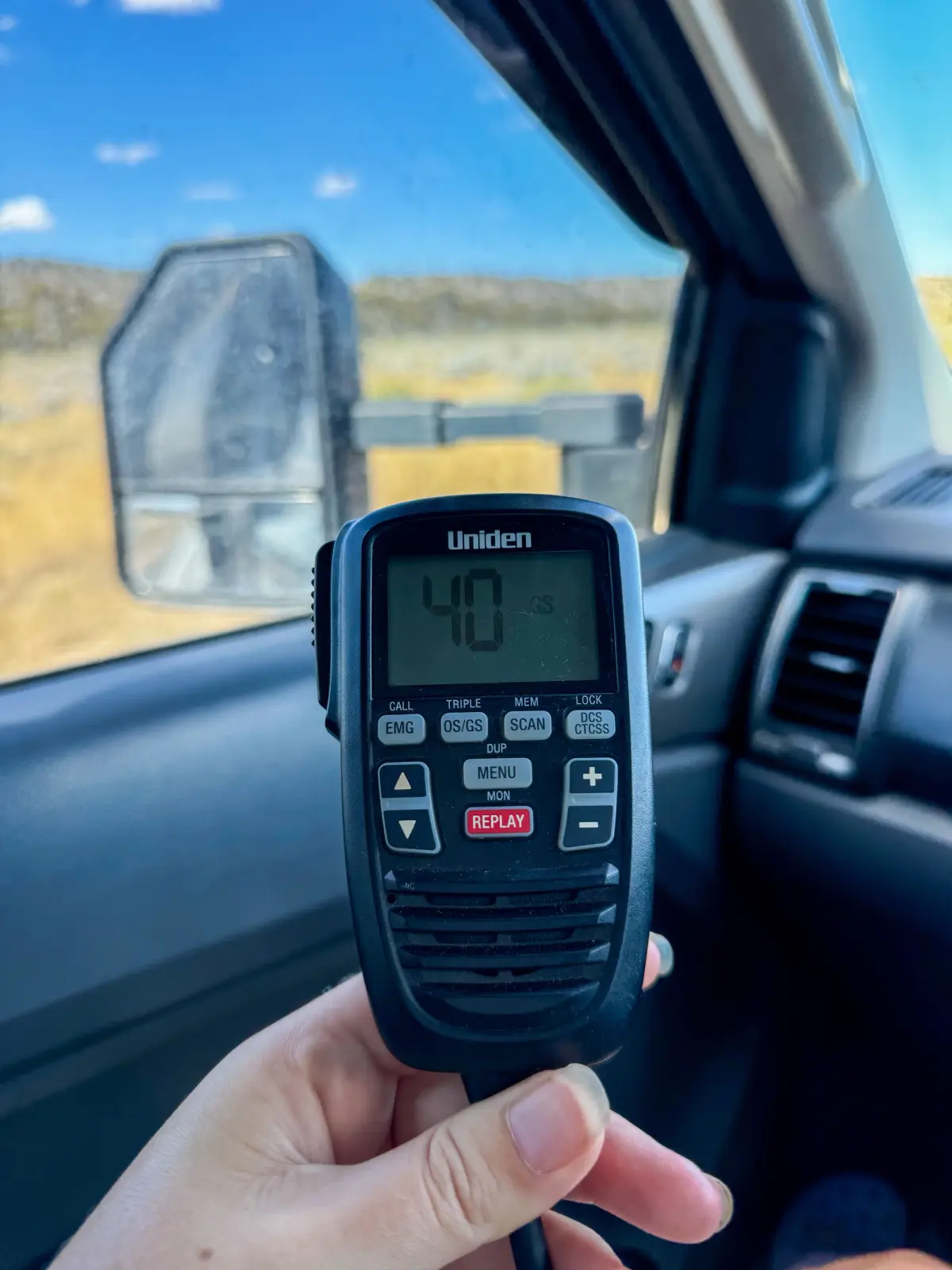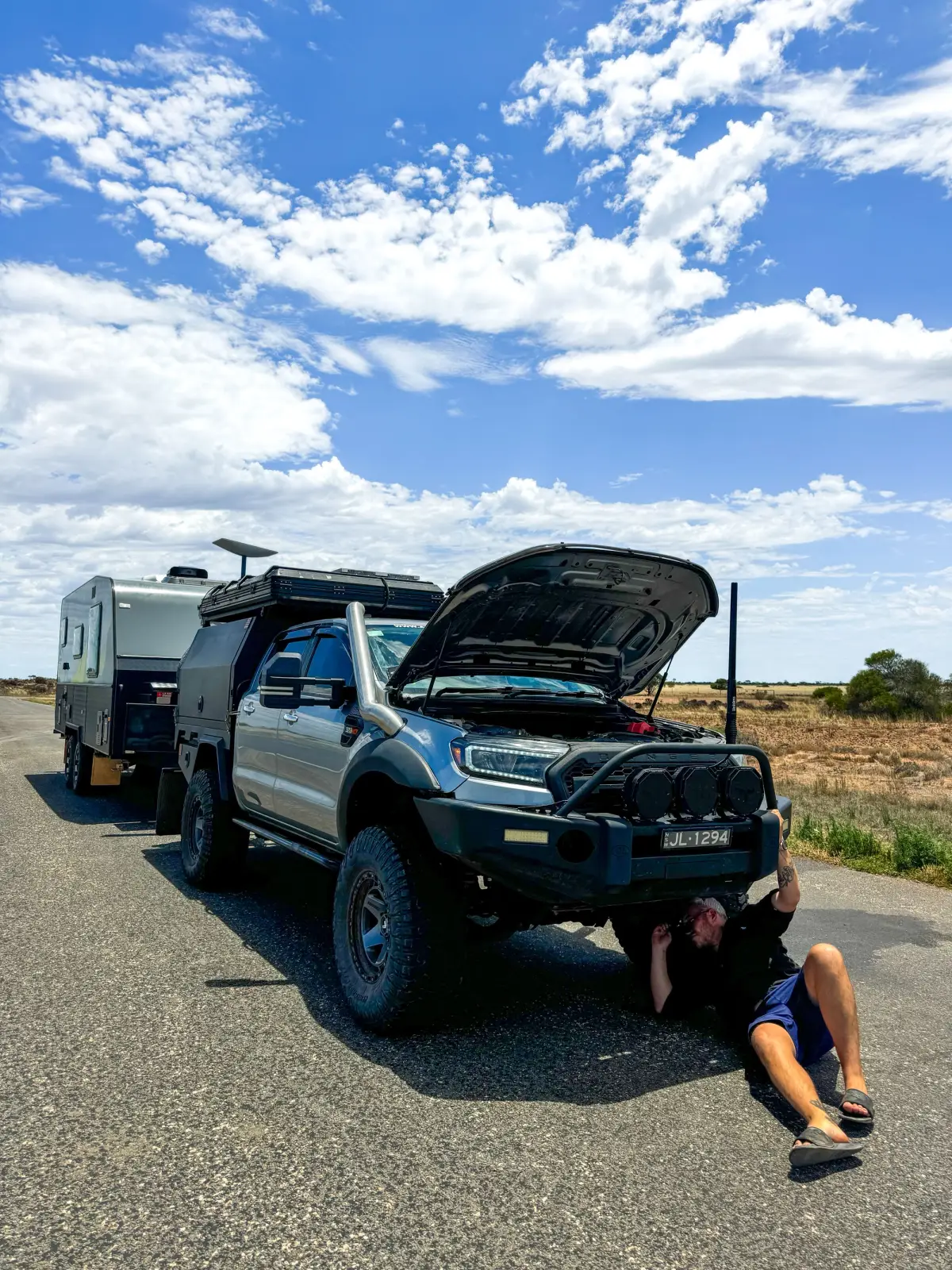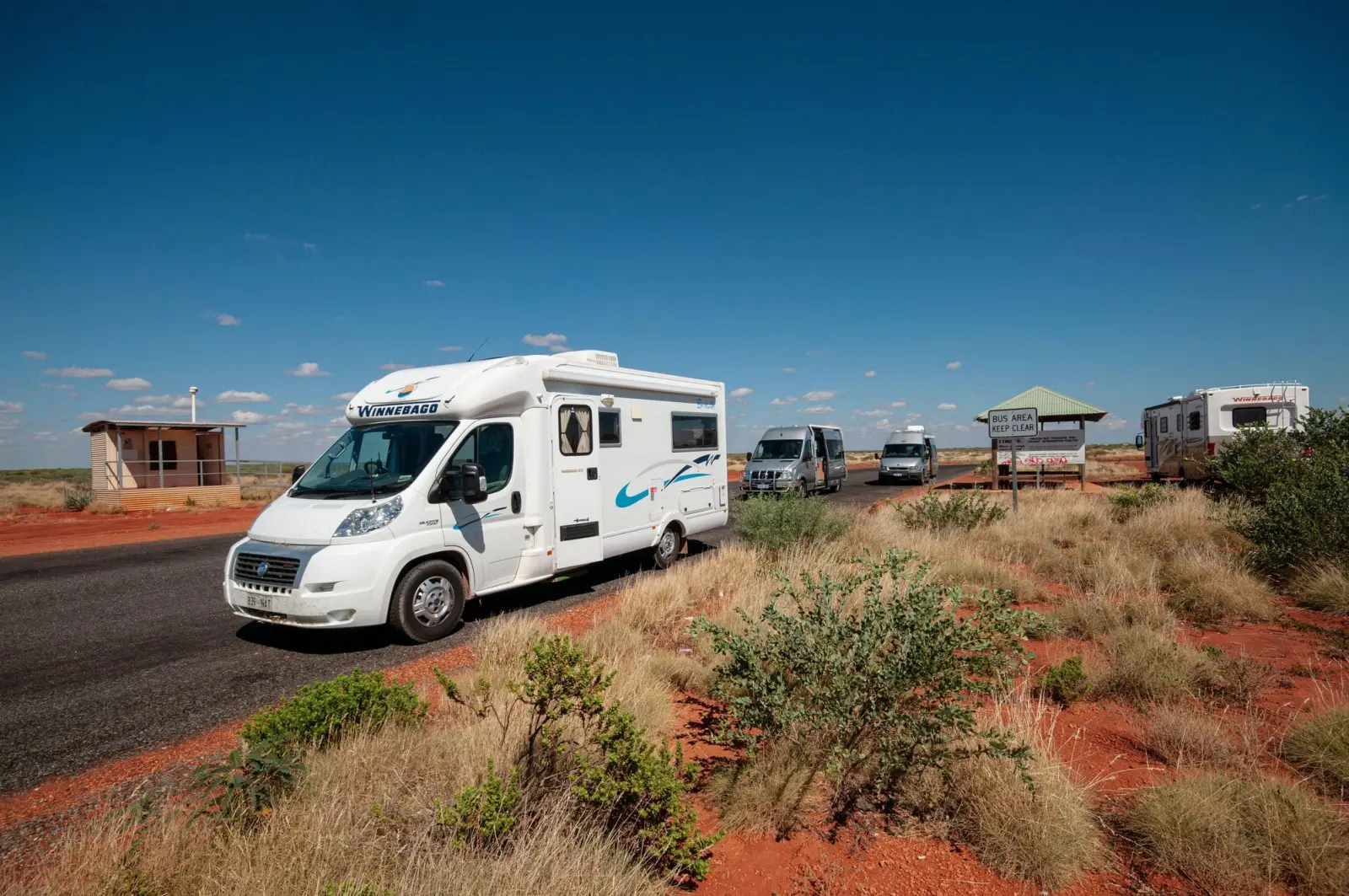It’s always a great time to adopt positive new habits, especially when they relate to road safety. Living on the road comes with its own set of challenges and responsibilities, particularly when it comes to keeping yourself and others safe.
Here are a few practical tips and road practices that can help make 2025 a safer year for everyone on the road—whether you're an RVer or not
1. Invest in a UHF
A UHF radio is one vehicle modification many people don’t fully appreciate until they hit the road, whether for a trip or full-time travel. While it’s often seen as just a tool for truck drivers to chat during long hauls, it’s actually one of our must-have items - we can’t imagine traveling without it.
Earlier this year, while camped in a relatively remote area, someone in our group was bitten (we think by a spider). They quickly began feeling unwell and were in a lot of pain. With no phone reception, we hopped into our vehicle and used the UHF to call for help. Fortunately, some locals traveling nearby heard our call and guided us to the nearest medical clinic. Even more fortunately, their support didn’t stop there. They stayed in touch, checking in regularly to ensure we were okay and that I (the driver) was staying calm.

investing in a uhf before your next road trip is a worthwhile investment
Another key benefit is the ability to communicate between vehicles—whether to notify others of plans to overtake or to alert them of safety concerns they might not be aware of.
Remember to familiarize yourself with the correct channels. For example, keep UHF channel 5 and channel 35 clear for emergencies, and use UHF channel 40 for communication with truck drivers and most vehicles.
If you’re traveling in convoy and want to chat, switch to a different channel to avoid clogging up channel 40.
2. Plan adequate rest stops
The “stop, revive, survive” reminder is not just catchy—it’s lifesaving. Driving while drowsy contributes to 20% of road fatalities in NSW alone*, alongside other concerning findings such as a survey by the Transport Accident Commission (TAC), which revealed that one in five Victorians have driven when so tired they struggled to keep their eyes open.
Taking regular short breaks during long drives can significantly reduce the risk of falling into microsleeps - those brief lapses in attention that last only a few seconds but can be enough to cause a fatal accident. Personally, I’d rather arrive late than not arrive at all. However, if your own safety isn’t your top priority, think of the other road users. We all share the responsibility of keeping each other safe.
Take the time to hop out, stretch your legs, or even go for a quick walk. Simple actions like these can work wonders in restoring both your energy and focus, leaving you better prepared for the next leg of your journey. And while at rest stops, remember to follow the “leave no trace” principle by taking all your rubbish with you.
3. Make vehicle maintenance a regular habit
Prevention is always easier than a cure, whether it’s related to your personal health or the condition of your vehicles. Make it a habit to regularly check both your RV and towvehicles to catch potential issues early. Stay on top of servicing for both and ensure you have the right spares on board.
Time flies by, especially when you’re travelling full-time, so implementing this habit is one way to ensure you’re on top of your safety throughout your trip and beyond.

regular vehicle maintenance is important
4. Restock first aid kits and replace any expired items
One often-overlooked task as the new year rolls in is replenishing your first aid kit. Not only should you top it up if essential items have been used throughout the year, but you also need to ensure everything is up to date. Check the expiry dates on any medications or perishable items in your kit, so you're fully prepared for the adventures ahead.
Ideally, you'll have a fully stocked first aid kit that you never need to use. However, it’s essential to never leave home without one, especially if you're planning to venture along the road less traveled.
Trusted For Over 30 Years
We’re passionate about protecting your home away from home
Safety on the road is a skill KT Insurance encourages all travellers to stay up to date with and continually strive to improve. February isn’t too late to set a goal for the new year, so alongside your usual resolutions like "get fitter" or "stop in at less McDonald's," make it a priority to implement (and stick to) more safe travel practices. By doing so, you'll reap the benefits for many years to come.
References
*https://www.nsw.gov.au/driving-boating-and-transport/roads-safety-and-rules/safe-driving/fatigue?


